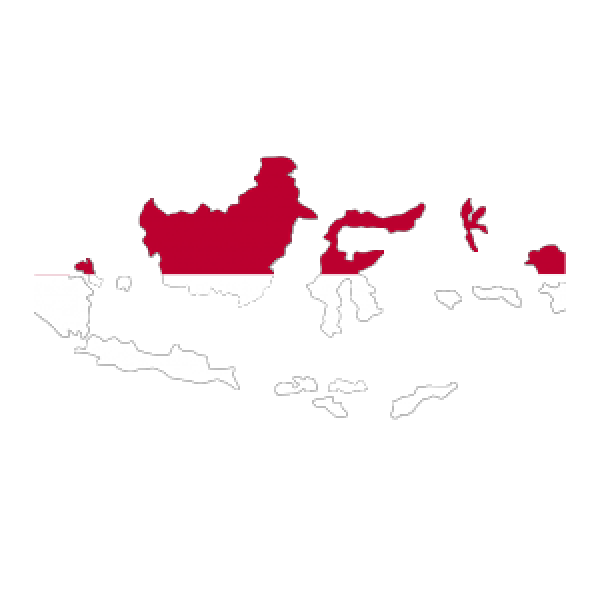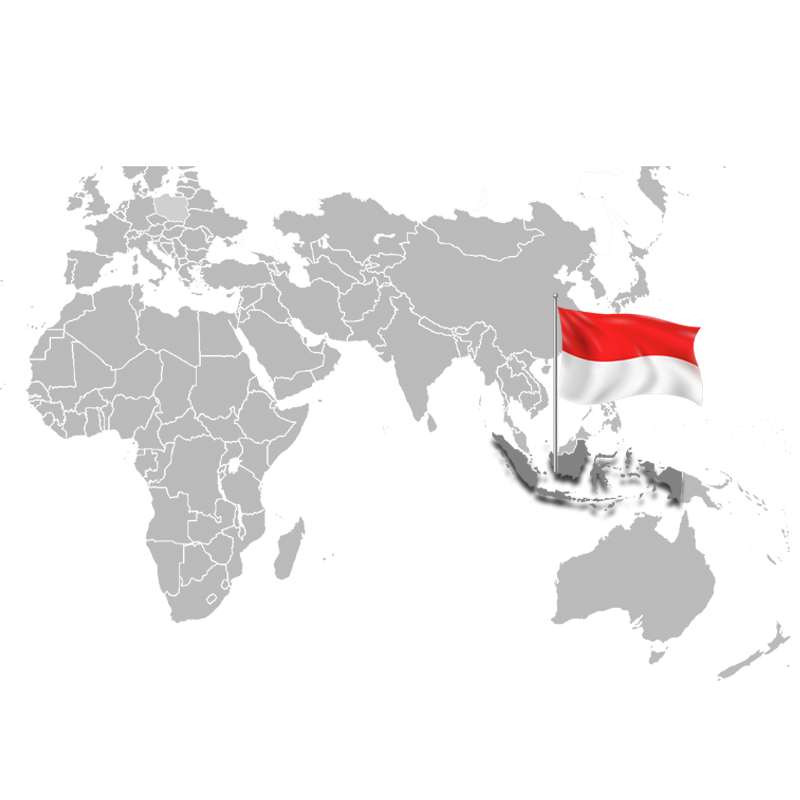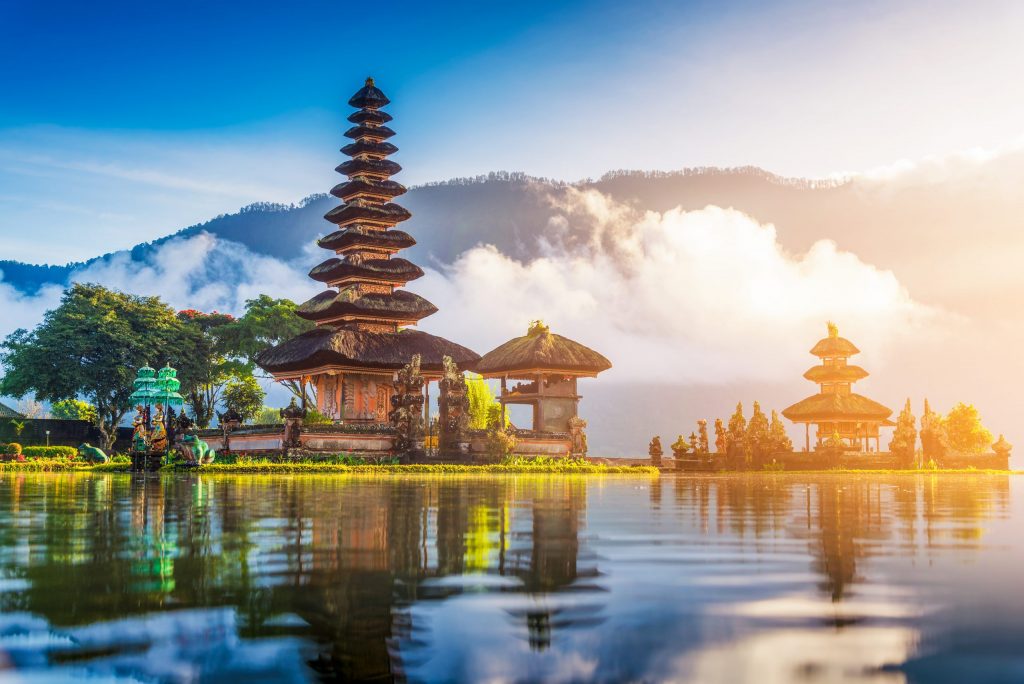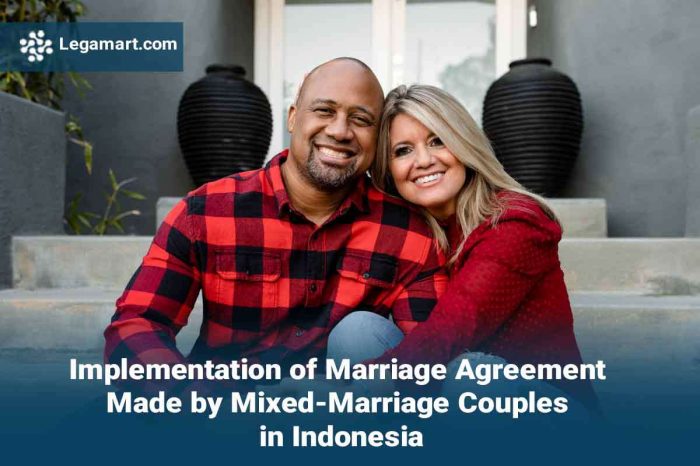Indonesia
We represent clients from all around the world in Indonesia every year. We see the globe as having no borders and are unafraid of language hurdles or time zones.


LegaMart Lawyers in Indonesia
Legal Industry in Indonesia

Articles about Law in Indonesia
Daniel Dhanu Prayogo
Tell us more about your problem.
Please give a brief description about what it is you need to talk to our lawyers about ?
Most common legal demands in Indonesia
Legal Market Overview in Indonesia
Indonesia, located between the Indian Ocean and the Pacific Ocean along the equator between Asia and Australia, is divided into 34 provinces, with Jakarta as its capital. The official language of Indonesia is Indonesian, and the currency is the rupiah (IDR).
Indonesia, which consists of 17,508 islands and approximately 270 million people, is the world’s fourth-most-populous country. It is also the world’s third-largest democracy, and the world’s largest archipelagic state.

Indonesia continues its serious efforts to promote foreign investment as well as domestic investment, capital accumulation, and the export of goods other than energy and mineral resources to expedite economic development and to become internationally competitive. A broad range of deregulatory measures have been implemented, and additional measures and tax facilities can be expected to further enhance the investment climate.
As one of the leading tax practices in Indonesia, PwC Indonesia includes more than 300 professionals consisting of accountants, lawyers, and finance specialists. Our practice strives to understand your business, working together with you and contributing our expertise as tax specialists for the best outcome for your business. We not only listen to your questions and address your immediate concerns, but we also dig further to identify any other issues and needs you may have. We then work together with you to arrive at the best possible solutions.
Only one category of lawyer is recognised in Indonesia, that is, the advocate (advokat), a term which is used in relation to all types of lawyers who provide professional legal services either in or out of court. This includes advocates, practising lawyers (public and private), in-house lawyers, legal counsel and legal consultants (Article 1(1), Law No. 18 of 2003 on Advocates (Advocates Law)).
To qualify as an advocate, a person with a Bachelor’s degree obtained from law faculties of universities, Sharia faculties, military law colleges and police academies (Article 2(1), Advocates Law) must complete the legal professional course known as the Special Education for Advocates (Pendidikan Khusus Profesi Advokat) (PKPA). The PKPA is run by an advocates association (similar to a bar association).
According to the data in 2010, the population in Indonesia was approximately 230,641,000. According to the membership data in PERADI by November 2011, the number of lawyers in Indonesia is 23,075

Indonesia’s general rule of law score decreased by less than 0.5% in 2022’s Index. At 64th place out of 140 countries and jurisdictions worldwide, Indonesia’s rank decreased by 2 in the global rank in comparison to 2019 (62).
According to World Justice Project Approximately 26% of people surveyed experienced at least one legal problem in the last two years. 21% Were able to access help and 8% Experienced hardship in resolving their legal issue.
While the prevalence and severity of problems vary in Indonesia, the most common problems relate to the consumer, citizenship and ID and money and debt. Also, Less than %21 of people in Malaysia who experienced a legal problem sought any form of advice to help them better understand or resolve their problem, and those who did seek assistance preferred to turn to family members or friends (%76).
Frequently Asked Questions
How is commercial arbitration used and what are the recent trends?
Use of Commercial Arbitration and Recent Trends
Arbitration is commonly used in many commercial sectors, including construction, general commercial matters, financial services, technology and communications, mining and natural resources and investments.
Arbitration in Indonesia is governed by Law No. 30 of 1999 on Arbitration and Alternative Dispute Resolution (Arbitration Law). The Arbitration Law defines arbitration as a method of settling a civil dispute outside the general courts, based on an arbitration agreement made in writing by the disputing parties. It recognises both domestic and foreign arbitration processes. District courts do not have jurisdiction to hear disputes between parties that are bound by an arbitration agreement (Article 3, Arbitration Law).
The Arbitration Law prescribes the arbitration process in Indonesia, such as the:
Appointment of arbitrator(s) by the parties (see Question 18).
Confidentiality of the proceedings (see Question 23).
Final and binding nature of the arbitral award (see Question 28).
Many large commercial disputes (especially those with an international element/nature) are settled by arbitration. However, to the best of the authors’ knowledge, the number of commercial disputes settled through arbitration in Indonesia is still less than the number of commercial disputes settled through court proceedings. The most commonly arbitrated cases are:
Insurance disputes.
Construction disputes.
Trade disputes.
Disputes regarding the termination of agency agreements or commercial leases.
Disputes between or among oil, gas or mining contractors.
Other general contractual claims.
What legislation applies to arbitration? To what extent has your jurisdiction adopted the UNCITRAL Model Law on International Commercial Arbitration 1985 (UNCITRAL Model Law)?
The legislation that applies to arbitration in Indonesia is the Arbitration Law. It replaced the Dutch colonial legislation that regulated the procedure of alternative dispute resolution.
The Arbitration Law does not adopt the UNCITRAL Model Law.
What are the important questions that the buyer (Foreigner) needs to ask the seller (Indonesian)?
What type of rights does the seller have on the asset? Make sure to see the original official documents that grant the seller ownership of the land (Hak Milik)
Are there any liens or mortgages on the asset? It is important to make sure that there are no competing claims on the assets.
Is the seller married? If so, the partner of the seller needs to sign the AJB unless the seller has a prenuptial agreement with the partner giving the seller the sole rights to the asset.
How arIs it compulsory to arrive to Jakarta?e intellectual property rights protected?
Yes. Bali is currently closed for International flights, so arrival is carried out via Jakarta. This does not apply to visa restrictions. When the island opens for international flights – welcome straight to Bali!
What legal documents are involved when a foreigner buying real estate in Indonesia, and what is the process?
A sale purchase deed (“AJB”) that essentially outlines the terms of the transaction must be prepared between the buyer and seller.
A land deed official, known in Indonesian as a Pejabat Pembuat Akta Tanah (“PPAT”), must be engaged to prepare the AJB.
The PPAT must reside in the same area as where the asset that is being transacted upon is located
After signing the AJB, the PPAT will ask the buyer and seller to provide proof that they have paid the taxes and levies required of each of them with respect to the transaction.
The taxes which need to be paid include: Land and Building Acquisition Fees (“BPHTB”), VAT, PPh (Withholding tax)
During the sale, the PPAT will also ensure that the Seller is current on his or her Land and Building Taxes (“PBB”), if these haven’t been paid the PPAT will require the Seller to clear these costs before moving forward with the transaction.
Once taxes and fees are taken care of the PPAT will execute the transfer of title from the seller to the buyer (i.e. Changing the name on the certificate from the seller to the buyer) and register the transfer with the National Land Registry (“BPN”).
Once the PPAT receives confirmation of the registration from the National Land Registry the revised land certificate will be handed over to the buyer.
How long do Hak Pakai rights last?
Hak Pakai rights can last for as long as 80 years. The initial term is for 30 years which can be extended for another 20 years. After the first extension, a second extension can be obtained for an additional 30 years after which the rights must be surrendered or transferred.
Are there any mandatory legislative provisions? What is their effect?
The Arbitration Law contains the following mandatory legislative provisions:
Use of Arbitration. Arbitration can only be used if it is agreed by the parties in writing. Once it has been agreed, the parties in dispute have no rights to bring the claim to the district courts (Article 2, paragraph 1 and Article 4, paragraph 11, Arbitration Law).
Appointment of Arbitrators. Arbitrators must:
have the ability to act under the law;
be at least 35 years old;
not have any family relationship with the parties to a dispute;
not have any financial or other interests in the arbitration award; and
have 15 years’ experience and knowledge in the area of the matters being disputed.
(Article 12, Arbitration Law.)
An arbitrator that has been requested to sit on an arbitration panel must inform the parties in dispute of the matters that may affect its impartiality (Article 18, paragraph 1, Arbitration Law). In addition, the parties can challenge the appointment of the arbitrators if there is sufficient cause and authentic evidence which give doubt to an arbitrator being impartial in rendering the award (Article 22, paragraph 1, Arbitration Law).
What constitutes a valid residence permit?
The first requirement a foreigner must meet in order to purchase real estate in Indonesia is to have a local residence permit (“Izin Tinggal”). Valid residence permits include[1]:
Diplomatic residence permit – Issued to foreign government diplomats.
Official residence permit – Official permit often issued to foreign NGO staff or foreign government staff that are not diplomats.
Visiting residence permit – A temporary visit pass for foreigners.
Limited stay permit – Otherwise known as a KITAS, this is an extendible long-term resident permit (often tied to a work permit, marriage to an Indonesian citizen, retirement, etc.).
Permanent residence permit – Otherwise known as a KITAP.
Hak Pakai rights are valid for as long as a foreigner has a valid residence permit; the rights expire if the residence permit is not renewed (most of the residence permits available to foreigners need to be extended every year and are subject to various terms and conditions depending on the type of the permit). In the event that a foreigner acquires Hak Pakai rights but then has his or her residence permit expire or become invalid, he or she will be required to relinquish or transfer his or her Hak Pakai rights to another party that is eligible to receive the transfer.










